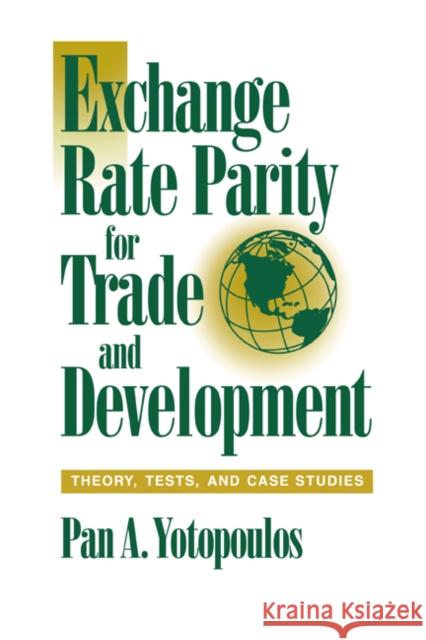Exchange Rate Parity for Trade and Development: Theory, Tests, and Case Studies » książka
Exchange Rate Parity for Trade and Development: Theory, Tests, and Case Studies
ISBN-13: 9780521022620 / Angielski / Miękka / 2005 / 344 str.
Exchange Rate Parity for Trade and Development: Theory, Tests, and Case Studies extends recent theories of incomplete markets to investigate empirically the appropriate balance between market and state in trade relations between developed and developing countries. Yotopoulos concludes that government intervention in foreign exchange and trade is necessary in developing countries in the early stages of development and inevitably decreases as development progresses. More specifically, free currency markets are shown to have an inherent distortion that leads under-developed countries to misallocate resources systematically. Rationing of foreign exchange prevents a "soft-currency distortion" that commonly afflicts developing countries and can turn comparative-advantage trade into competitive-devaluation trade, with severe losses of income and welfare. It is found that the level of under-development narrowly circumscribes and conditions the extent to which free-market, free-trade, laissez-faire policies can be beneficial to developing countries, which is contrary to the mainstream policy paradigm as currently applied. The analysis and tests draw on empirical research in 70 countries to confirm the usefulness and validity of the theoretical framework. The book concludes with extended case studies of Japan, Taiwan, the Philippines, and Uruguay and with relevant policy recommendations.











